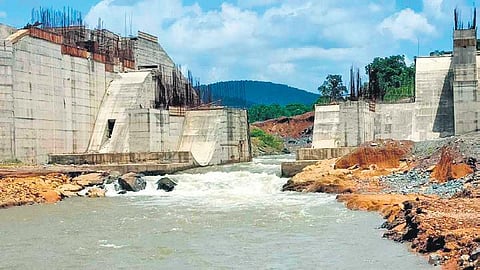

BARIPADA: In a bid to speed up the Deo Irrigation Project, the Mayurbhanj administration is planning to shift at least 538 more families of seven villages in Karanjia sub-division by November. The project, lying in cold storage for over three decades, recently released water on experimental basis and is expected to be fully functional soon.
As per direction of Collector Vineet Bhardwaj, a review meeting was held by Karanjia Sub Collector Dr. Rajanikanta Biswal in presence of Deo project executive engineer Anil Kumar Panigrahi, SDPO Sudarshan Gangi, BDO Debasish Baral, tehsildar Smruti Ranjan Sahoo and special land acquisition requisition and rehabilitation officer of the project Narendra Nath Majhi, on Friday. Sources said, over 1,040 families would have to be relocated for the project.
Of these, the district administration had already relocated 502 families from Hatibari, Dudhiani and Migriginandi areas in different phases but the process was reportedly delayed due to irregular allocation of funds by the State government.
After the review meet, Biswal said the district administration is chalking out a strategy for relocation of remaining families in the sub-division who will be fully or partially affected by the Deo project.
As per the strategy report prepared by the rehabilitation officer, at least 538 families from 7 villages - Sanabarhakamuda, Badabarhakamuda, Kadalibadi, Badramchandrapur, Shamchandrapur, Thakuramapatana and Purunapani - will be rehabilitated. Compensation, housing under various government schemes, shifting and temporary house facilities will be provided to them.
On June 25, the irrigation project released water on an experimental basis, 29 years after its inception. Initially, the water of the project will cover more than 3,500 hectare lands for kharif cultivation this year.